February 25th, February – Shabbat is almost here
And today, in this sad day, with the heart with Ukraine and with the good people of Russia, with the music of Dobranotch.
Hello, how are you? I hope well. At the beginning of the week I decided to dedicate this edition of MBS to the band from St. Petersburg Dobranotch. Their latest album is an outstanding work of klezmer music. No one imagined what would happen very soon after. On Monday I sent a few questions to Mitia Khramtsov, the band’s singer and violinist, on Tuesday he replied and by Wednesday night the world had suddenly changed.
We are all very worried about the people of Ukraine and we also all know that most of the people of Russia are living these days with enormous pain and shame. I know these are the feelings of our protagonists of today. I hope the war will be over soon. In the meantime, I hope you will find a few moments of comfort with Dobranotch’s wonderful music. Thank you, Mitia!
Then, please, spread the word.
About Dobranotch
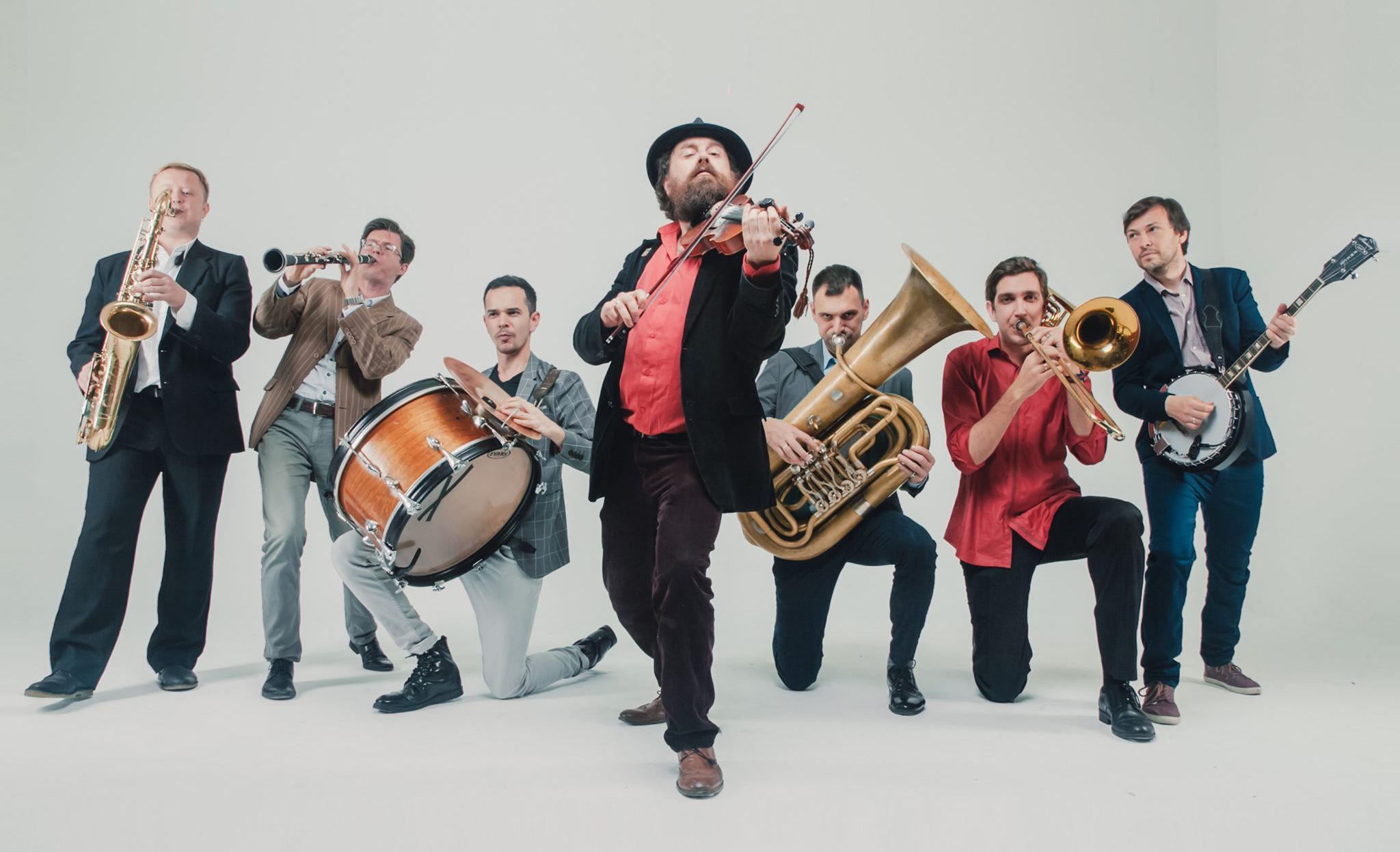
“The band “Dobranotch” was set up in 1998 in France where a company of friends musicians from St.Petersburg, Russia was driven by wanderlust and the love of fresh musical experiences. After some years of travels the band came back to St. Petersburg to get a new lineup and new sound. […] Throughout its existence “Dobranotch” has toured across more than twenty countries of the world and recorded six albums. One can hear the band’s music in TV series, feature films and documentaries. The band “Dobranotch” sounds equally convincing on philarmonic stages and in clubs and on open air festivals. It is not uncommon that the musicians of the band come down off the stage to play right among the audience, as their predecessors did at weddings a hundred years ago.”
Indeed, a few days ago they offered their services for weedings, in this post on Facebook.
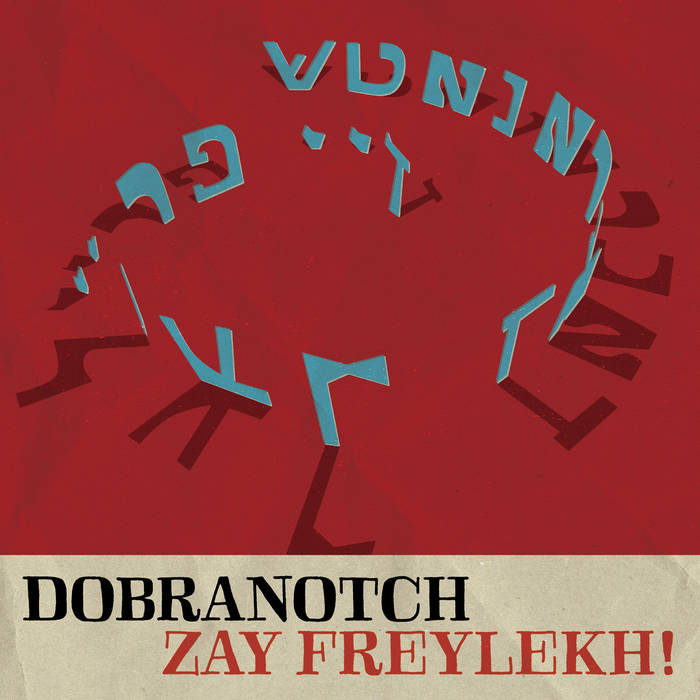 Their latest album is Zay Freylekh! It has been released by CPL-Music and you can listen to it here. In the press release, the album is presented like this:
Their latest album is Zay Freylekh! It has been released by CPL-Music and you can listen to it here. In the press release, the album is presented like this:
“With “Zay Freylekh”, Dobranotch, the wild klezmer and Balkan band from St. Petersburg, celebrate the love of life in difficult times. And what better way to do that than with a whole album of klezmer songs? In their home country, the multicultural troupe is often invited to festivities such as weddings in the Jewish communities. And what would a Jewish wedding be without dancing? That’s right, nothing! Some of the songs on the album are over 100 years old. And they have lost none of their freshness! By the way: A “Freylekh” generally refers to an Eastern European Jewish dance, which is mainly played at weddings.”
I really love the album and it was not easy to choose one piece. In the end, the historical connection weighed in the choice, and I chose Birobidzhan.
About the piece Birobidzhan, and about the Jewish oblast
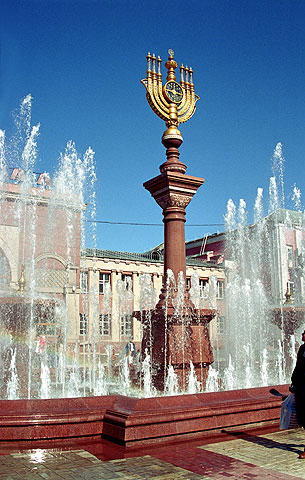
Dobranotch explain that the original of this tune “comes from the Soviet film “The Fortune Seekers” from 1936. At the time, Comrade Stalin had the dazzling idea of settling Russian Jews in Birobidhzan, a newly established autonomous region in the very Far East of Russia. The film was intended to boost the influx of Jewish settlers. At times, the song was very popular among Soviet Jews. One of the band members recently found the old single among his grandfather’s belongings!”
This 👉 place is the main square of Birobidzhan and I found it in Wikimedia. It is by the user Texaner.
I have found more information about this film, with the name translated as “Seekers of Happiness”. The National Center of Jewish Films has a file about the film, here. It is available to buy, with English subtitles, and it is acredited as from 1934. In Wikipedia there is a huge synopsis and analysis of the film, that seems quite trustable. You can read it here.
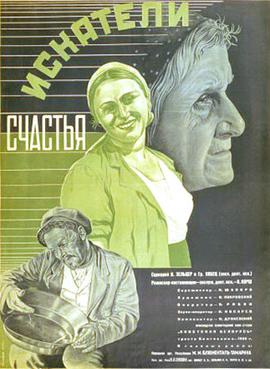
The film is also available on Youtube, but in Russian and without subtitles. It is in the channel History Club, that hosts many film documents of public domain, from the history of Russia and the USSR in the first half of the 20th century. You can listen to the song in 19:36, here. So you can compare with the version by Dobranotch.
This 👉 is a poster of the film, that I found in Wikimedia, and I use under fair use.
The film was an oustanding success. On the website of Lechaim.ru there is a very interesting explanation of the reactions to the film, by Anatoly Kozak. It is in Russian but you can manage with an automatic translator. Anyway, I selected a part that is specially meaningful, specially today. It is long but it is really worth of it:
“It should be noted, in my opinion, a very significant detail: “Seekers of Happiness” was watched not only by Jews, the film drove everyone crazy – Russians, Ukrainians, Moldovans, Germans, of which there were a lot in the city and especially in its environs – all of Odessa of different tribes. I do not remember a single inhabitant of Odessa who would speak disrespectfully about the film and its characters, and the heroes of the Birobidzhan story literally entered Odessa life. I remember that at school we had a Ukrainian boy, who, after this picture, was nicknamed “Pinya”, and the nickname “Aunt Dvoira” stuck to my neighbor on the landing. In a word, this comedy, unique in its kind, was an excellent international call for even greater unification of all races and peoples that then inhabited the USSR. In the end, there was nothing strange in this: Odessa did not know the word “Jew” at all in those years, moreover, mixed marriages of Jews who had departed from Jewish traditions with Christians became a general phenomenon. I remember very well the villages near Odessa, where the Ukrainians, who lived side by side with the Jews, spoke Yiddish fluently.
But this is not the paradox. Just five years later, the not adored artist, who brilliantly played a role in the famous film, and Odessa Jews were driven along Richelieu Street towards the station – to a concentration camp. Along the entire street stood, as happened during demonstrations, those who were allowed to live under the Nazis, and watched their neighbors being driven to who knows where…
Pitiful, mortally frightened Jewish women pulled the children by the hand; some of their sick, infirm relatives were dragged on mattresses…
After the war, I was told that some of the spectators tore off the shawl, some of the blouse from the Jewish women, saying: “Do not be offended, Sar-rochka, you will no longer need it anyway!” But quite recently, both of them watched “Seekers of Happiness” together and laughed and cried together, sincerely experiencing all the ups and downs of Jewish cinema history… I am sure that among the most notorious scoundrels-punishers who voluntarily signed up as henchmen of the occupiers, there were those same Germans -colonists from suburban villages who are so fond of the songs of Isaac Dunayevsky…
How to combine it, how to understand?…”
The music of the song is by Isaak Dunaevsky, who is mentioned at the end of the text above, and the lyrics by Vladimir Voljenin. Isaak Dunaevsky was born in 1900 to a Jewish family, in Lokhvytsia. That is 220 kms to the East from Kiev. At that time it was the Russian Empire. Nowadays it is Ukrainia. And let’s hope it remains Ukraine.
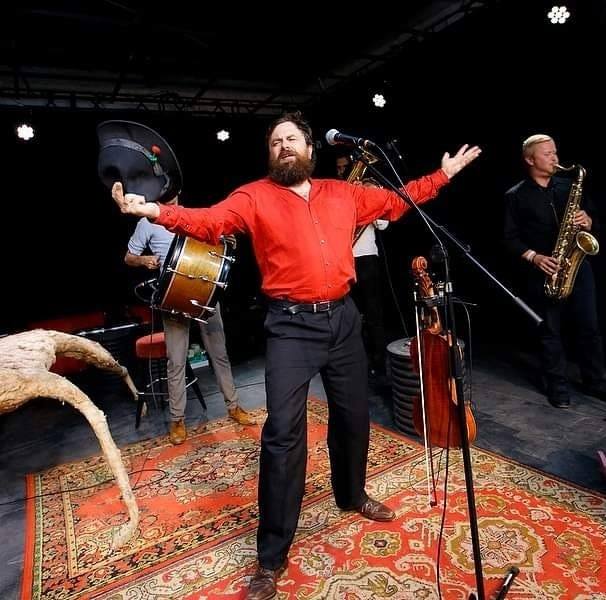
Mitia Khramtsov, from Dobranotch, explained to me that in former Soviet Union, the song is known as Evrejskaja komsomolskaja, that means song of Jewish Komsomol members. Komsomol is youth communist organization in USSR.
Mitia also told me that there is a quite famous Israely song with the same melody called “Qumah Ekha” (קומה אחא), composed by Shalom Postolsky. Here is it.
This 👉 is Mitia. I took this picture from his Facebook profile. I invite you to visit his profile.
He told me that he has been in Birobidzhan a couple of times and played at Jewish culture festival. “They have the festival because this is a “oficial” Jewish autonomy in Russia but there are nearly no Jews any more. Most of them left for Israel when the borders were opened. Birobidzhan is a small forgotten place at the taiga of far East.” You can watch the band playing this song in Birobidzhan, here.

Mitia, very kindly, sent me also the lyrics of the song in Russian and in English:
| LYRICS IN RUSSIAN
На рыбалке у реки тянут сети рыбаки, Над рекою, над водой плавал месяц молодой, |
LYRICS IN ENGLISH
Fishermen pull nets by the river. Above the river, above the water |
It’s time to enjoy the music.
Click the picture to listen to Биробиджан (Birobidzhan) by Добраночь (Dobranotch, good night):
